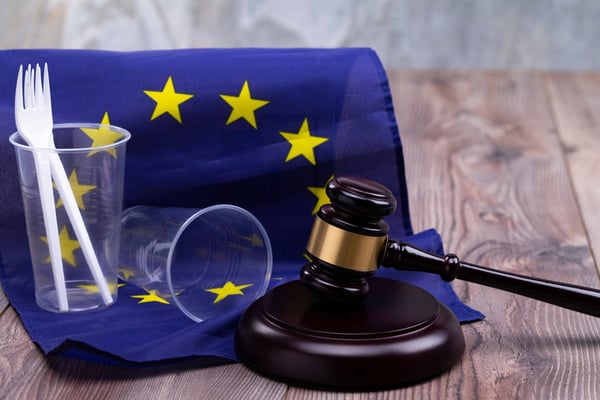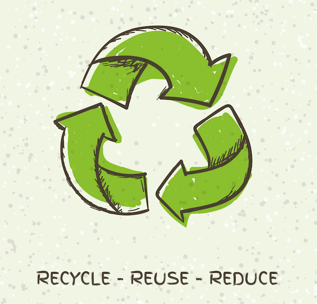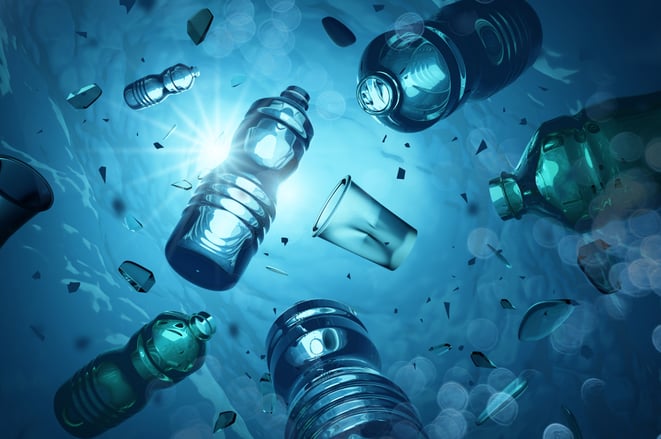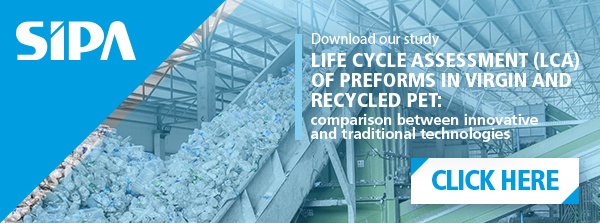On 12 June 2019, the "Directive 2019/904/EU of the European Parliament, most commonly known as SUP - Single Use Plastic was published in the Official Journal of the EU.
This Directive, which entered into force at the start of July shall aim to address the reduction of the impact of certain plastic products on the environment, by promoting circular approaches that give priority to sustainable and non-toxic re-usable products and re-use systems rather than to single-use products, aiming first and foremost to reduce the quantity of waste generated.
Read also: "PET packaging material: market trends and lightweighting factor"
What is the Directive policy on Single Use Plastic (SUP)
One of the primary Directive objectives is to take clear steps in protecting seas and countering the marine litter issue.
Everything is about EU legislation, now more complete and detailed.
Specifically, from 2021, the measure shall ban the use of certain disposable plastic products where suitable alternatives are on the market.
The Directive also entails the introduction of measures entering into force on different dates than the transposition of the directive in order to gradually adapt to requirements.
EU bans single use plastics: obligations for plastic producers and Member States
The Directive provides extended producer responsibility schemes for different products including fast food and takeaway food packaging containers, hot drink cups, cigarette filters, balloons, fishing nets, wet wipes.
These consumer products are to be financed by producers both as end-of-life collection activities that waste cleaning.
Depending on the product, between January 2023 and 31 December 2024, some additional requirements shall be met.
First, Member States should collect separately from other streams at least 77% of what released for consumption by 2025, and 90% by 2029;
Then, there are the reduction targets for disposable plastic products, considered still not easily replaceable, as walking cups and takeaway food containers ready for consumption (and any caps or lids).
In this case, the percentages of reduction are left to individual countries, as well as the measures taken to reach them between any use restrictions and promotion of reusable alternatives, with or without monetary incentives.
Minimal use of recycled material and other requirements for PET bottles
First, PET bottles that shall contain a minimum of 25% recycled content; this percentage will rise to 30% in 2030.
Starting from 2025, particularly common products shall undergo changes in their production.
Caps and lids in solidarity with the container for plastic beverages packaging; within five years following entry into force of the Directive, caps shall not be separable from container.
Within two years following the Directive, the compulsory labelling for products such as cigarette filters, plastic glasses, tampons and wet wipes is provided, in order to inform consumers about negative environmental impacts in the event of abandonment, and to provide the correct method of disposal.
Other consumer information and environmental awareness relating to use of the products are provided.
Some of these measures may affect, on several levels, the same product. PET bottles, for example, are subject to:
- binding collection targets,
- having a minimum amount of recycled material in its composition,
- having solidarity caps with containers (tethered caps),
- undergoing EPR schemes which finance both costs of collection and recycling, and the cost of environmental cleanup and for awareness campaigns.
EU bans single use plastics: materials and products banned from 2021
The directive sets out as a priority the ten most contaminating plastic products to address the emergency of marine litter. Those shall be the first to try to replace with similar products, making them of other polymers more attentive to ecosystems, in particular to the sea.
Experts report in recent years shown that the ultimate biodegradation of plastics occurs under conditions that rarely exist in the sea.
Therefore, the UN Environment Assembly adopted a resolution on marine litter and microplastics consistent with sustainable development goals enshrined by the United Nations.
The overall document aims to prevent and significantly reduce pollution of all kinds by 2025.
This measure sets out for the European countries a way to go beyond limits of these global agreements and resolutions (which are not binding for governments concerned) by acting directly on waste sources, proliferating in the seas and arriving by land.
SUP directive indicates under Art. 3 that unique polymers excluded from its scope are the natural ones, not chemically modified.
Biodegradable and compostable plastics, whether derived from renewable sources (totally or partially) or of fossil origin are chemically modified polymers and then are banned materials.
In the case of curtlery and plates, as plastic and bioplastic, even the artefacts made of composite materials, consisting of laminate paper and plastic coating, are not allowed.
The list of products or packaging subject to ban:
– Cotton buds for cleaning ears
– Cutlery (forks, knives, spoons, chopsticks)
– Plates (both plastic and paper with plastic film)
– Straws
– Drink mixers
– Balloons sticks (excluding for industrial or professional use)
– Containers with or without lid (cups, trays and their closures) in expanded polystyrene (EPS) for immediate food consumption (fast-food) or takeaway not further prepared
– Beverage containers and cups in EPS
– All oxo-degradable plastic disposables.







